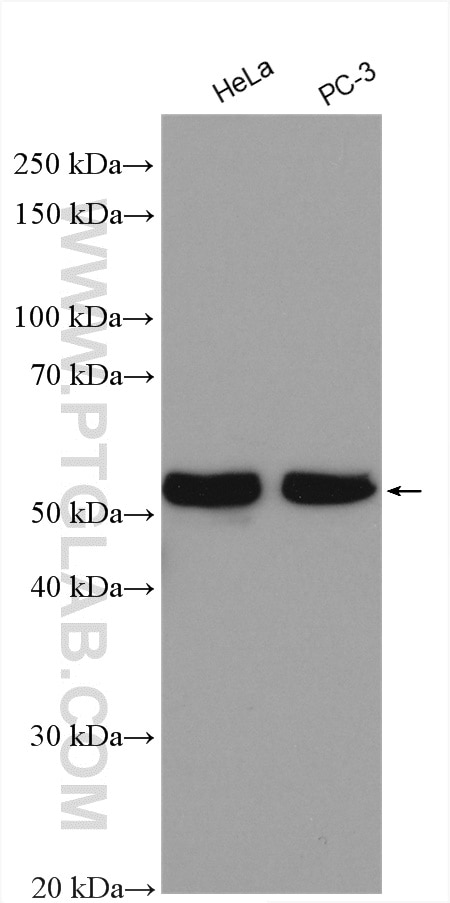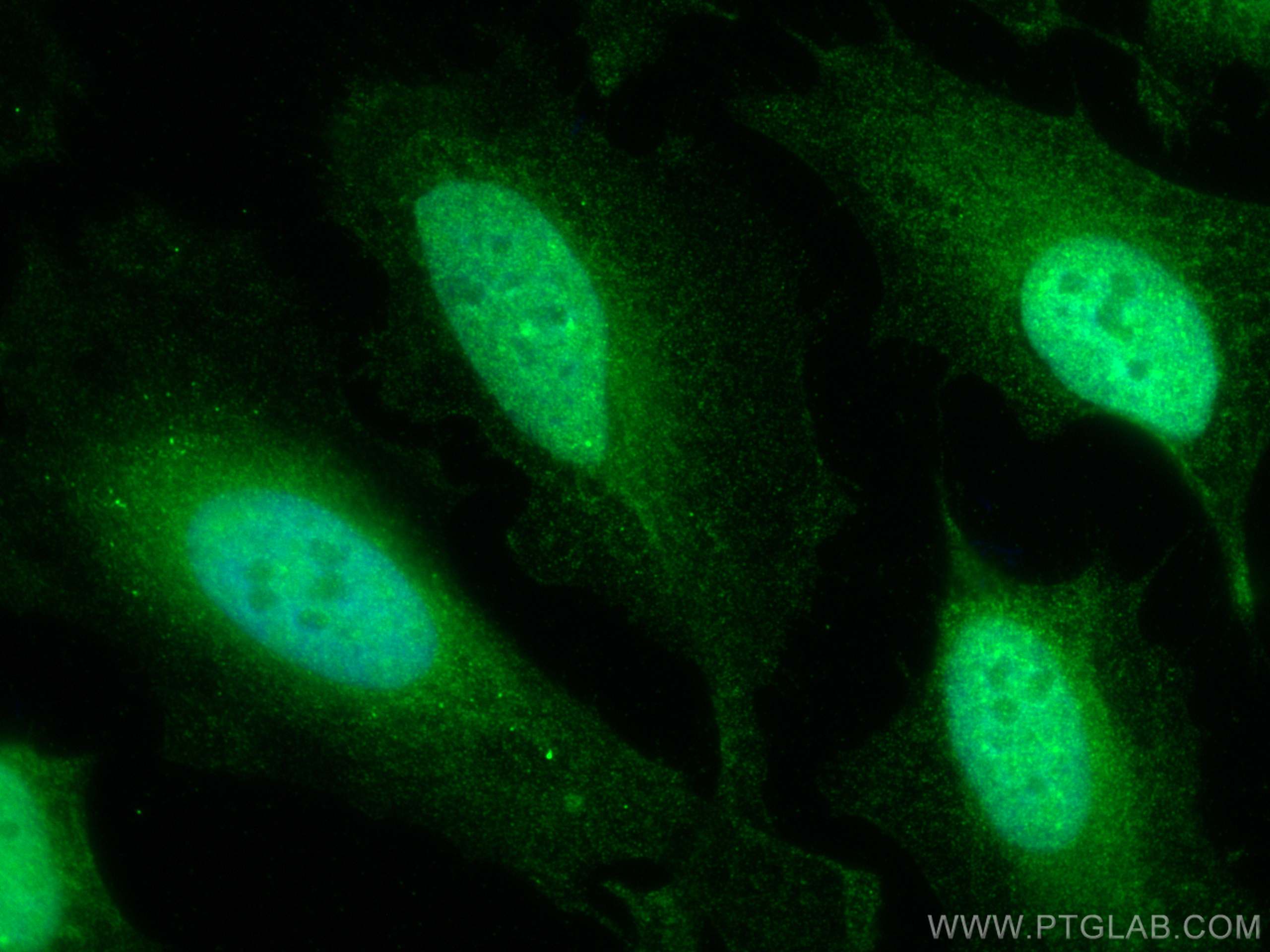- Phare
- Validé par KD/KO
Anticorps Polyclonal de lapin anti-SPAST
SPAST Polyclonal Antibody for WB, IF, ELISA
Hôte / Isotype
Lapin / IgG
Réactivité testée
Humain, rat, souris
Applications
WB, IF/ICC, ELISA
Conjugaison
Non conjugué
N° de cat : 22792-1-AP
Synonymes
Galerie de données de validation
Applications testées
| Résultats positifs en WB | cellules HeLa, cellules PC-3 |
| Résultats positifs en IF/ICC | cellules HeLa, |
Dilution recommandée
| Application | Dilution |
|---|---|
| Western Blot (WB) | WB : 1:500-1:2000 |
| Immunofluorescence (IF)/ICC | IF/ICC : 1:200-1:800 |
| It is recommended that this reagent should be titrated in each testing system to obtain optimal results. | |
| Sample-dependent, check data in validation data gallery | |
Applications publiées
| KD/KO | See 1 publications below |
| WB | See 4 publications below |
| IF | See 1 publications below |
Informations sur le produit
22792-1-AP cible SPAST dans les applications de WB, IF/ICC, ELISA et montre une réactivité avec des échantillons Humain, rat, souris
| Réactivité | Humain, rat, souris |
| Réactivité citée | rat, Humain, souris |
| Hôte / Isotype | Lapin / IgG |
| Clonalité | Polyclonal |
| Type | Anticorps |
| Immunogène | SPAST Protéine recombinante Ag18797 |
| Nom complet | spastin |
| Masse moléculaire calculée | 616 aa, 67 kDa |
| Poids moléculaire observé | 52 kDa |
| Numéro d’acquisition GenBank | BC150260 |
| Symbole du gène | SPAST |
| Identification du gène (NCBI) | 6683 |
| Conjugaison | Non conjugué |
| Forme | Liquide |
| Méthode de purification | Purification par affinité contre l'antigène |
| Tampon de stockage | PBS avec azoture de sodium à 0,02 % et glycérol à 50 % pH 7,3 |
| Conditions de stockage | Stocker à -20°C. Stable pendant un an après l'expédition. L'aliquotage n'est pas nécessaire pour le stockage à -20oC Les 20ul contiennent 0,1% de BSA. |
Informations générales
SPAST encodes a microtubule-severing protein called spastin. By severing microtubules into small segments, SPAST participates in the growth and regeneration of neurites. Mutations in the SPAST gene (previously known as SPG4) are the most common causes of hereditary spastic paraplegia (HSP-SPG4). Mammalian cells express at least two spastin isoforms, a less-abundant full-length form (M1-spastin, 68 kDa) and a more highly expressed isoform (M87-spastin, 60 kDa) that lacks the N-terminal 86 amino acids of the full-length protein. Also, there are two additional 64 kDa and 55 kDa isoforms due to alternative splicing of SPG4 exon 4. This antibody recognizes all these isoforms of spastin.
Protocole
| Product Specific Protocols | |
|---|---|
| WB protocol for SPAST antibody 22792-1-AP | Download protocol |
| IF protocol for SPAST antibody 22792-1-AP | Download protocol |
| Standard Protocols | |
|---|---|
| Click here to view our Standard Protocols |
Publications
| Species | Application | Title |
|---|---|---|
Cell Rep Resolving ESCRT-III Spirals at the Intercellular Bridge of Dividing Cells Using 3D STORM.
| ||
FASEB J Regulation of the blood-testis barrier by a local axis in the testis: role of laminin α2 in the basement membrane. | ||
Mol Biol Cell Spastin regulates anaphase chromosome separation distance and microtubule-containing nuclear tunnels | ||
Acta Neuropathol Commun The enhanced association between mutant CHMP2B and spastin is a novel pathological link between frontotemporal dementia and hereditary spastic paraplegias |
Avis
The reviews below have been submitted by verified Proteintech customers who received an incentive forproviding their feedback.
FH Mhd Aghyad (Verified Customer) (09-15-2022) | I used the antibody for western blotting at 1:1000 dilution and it worked well. Clean clear bands could be observed at the expected size.
|



